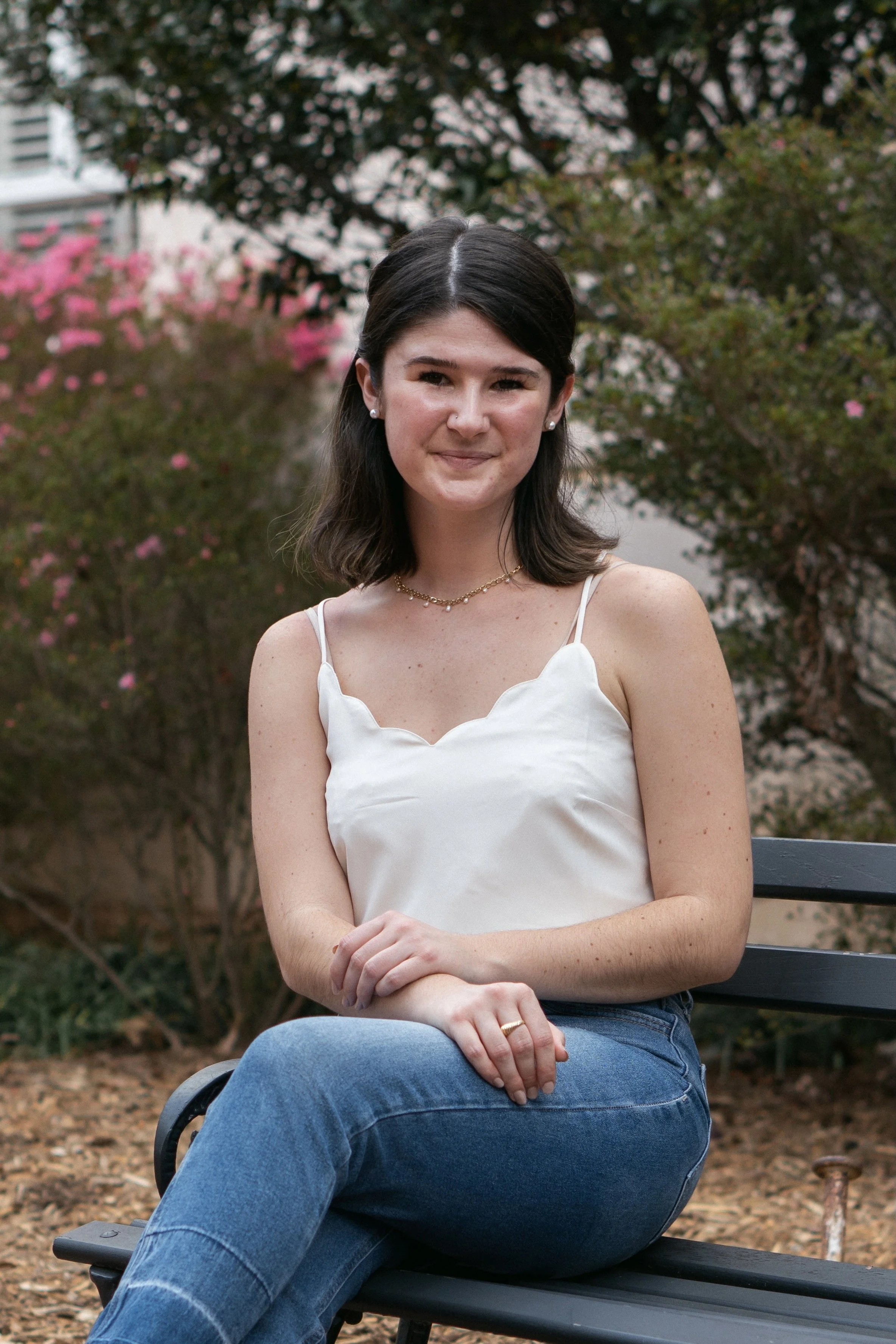Kate M.
Photography by Jadin Nassif
Before reading this letter, we'd like for you to know it discusses Kate M.'s experience with an eating disorder. If you think that reading about this will be triggering for you, we encourage you to take a pause before reading this letter, center yourself, and prepare any resources you may need to access after reading it. If you'd rather not read this letter, we encourage you to read a letter on a different topic, such as Dana Q.'s or Anonymous's letter. If you're reading this, your feelings are valid.
If you’re reading this, never wait to be sick “enough.”
By the time I began college at the University of South Carolina, this was the axis I had set my world on: enough. The word meant something different than it did in high school. There were more people – people to set my ambitions beside and whose feed my posts on Instagram would see – and I was certain that this would make it only all the more worthwhile when I finally achieved the more perfect version of me that I had long sought. She, that elusive girl, would be better and more beautiful and feel whole in all the ways I strived for. And so, from home I brought my career aspirations and a genuine interest in academics, and the textbooks that came with them, but not also without vested hopes between their newly printed pages that here- I would finally be enough.
I hit the ground running in my ambitions, doing everything to eat “right,” exercise, and involve myself in the university, but my motivations, hitched to a desperate need to fill my esteem, quickly sputtered into obsession. I was later diagnosed with depression, anorexia, and bulimia, and though I could say my actions manifested in these, they were likely attempting to cope with what had laid underneath for a number of years. Diagnoses aside, I was consistently unhappy and my body, along with its relationship with my emotions, was unwell.
But it didn’t matter; I wasn’t sick enough. I wasn’t thin enough, or spread thin enough, or wrapped up in my thin thoughts like frail lead sheets enough, to be enough- let alone for it to be a problem. At least not yet. I would hold out, somehow, until that day when it was evident that I needed it. I was certain I would know it when it came, just as I would know the face of the elusive perfect girl on the first morning I woke and saw her in the mirror.
Eventually, I sought treatment without any such sort of epiphany or intervention, just days wasted with nothing to show for the time vested in not believing that my condition warranted outside help. Ultimately, there were no checked boxes or qualifications I met to become the “right” patient, just moments I could’ve spent in joy or love or contentment or breadsticks.
If you’re reading this, please never wait until the day you’re sick enough. You are too important for that. If that is how you begin to view your wellbeing, I promise you will one day mourn for the minutes from our finite time in this life that you bided waiting to deserve to be happy. There are no limits to the contingencies we can continue to place on our mental health, to expand the bounds of the sickness we are willing to bear just as we do the bounds of our self-expectations before we accept that we are finally worthy of our own esteem. There is no shortage of ways your doubts about the care you deserve can deceive you, the criteria you can be convinced to elusively one day meet, when the reality is that there is no certain way – no shape, race, gender, or threshold of suffering – of how mental illness could possibly look.
Mental illness and those deserving of its care are bound only in the innate preciousness that their life carries, and the look of an individual whose time is too valuable to waste in anything short of their greatest possible happiness. If you’re reading this, know that I think that person looks just like you.
Kate M., University of South Carolina
Connect With Us
To follow IfYoureReadingThis at UofSC on Instagram, get in touch with our chapter, and learn about more resources available to UofSC students, visit our chapter’s homepage.
AUTHOR CONTACT
This author has opted to allow readers who resonate with their story to contact them. If you would like to speak to the author of this letter about their experience, please use the form below.

